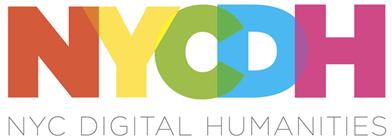Opportunities for archive-based training in digital humanities, to be hosted this spring at the American Antiquarian Society in Worcester, Mass. Workshop applications are being accepted through March 2.
The American Antiquarian Society is launching a new initiative with a conference and workshop to explore critical, historical, and practical challenges of archival research and access, offering project-based development and discussion focused on the AAS’s unparalleled holdings in pre-1876 books, manuscripts, newspapers, and graphic arts.
The two-day conference May 29 & 30 will open up questions related to digitization, cataloguing, and research design, exploring applications of digital tools and methods to diverse library materials, and identifying needs and opportunities in the development of critical bibliography appropriate to 21st-century tools. Participants include distinguished faculty and practitioners working at the intersection of critical bibliography, “history of the book,” and digital humanities.
Following the conference, concepts and methods will be more deeply explored in a five-day workshop June 1-5 dedicated to practice-based learning in digital humanities in the AAS’s major areas of archival development and research. The workshop will introduce students to fundamental questions about how data is organized and used in contexts of archival development and research. Intended for faculty and graduate students interested in archival research, as well as students in library and information sciences, the workshop will discuss archival practices of acquisition, preservation, and cataloguing, survey best-practices for archival research (both at AAS and other historical archives) and offer hands-on training in project-development utilizing AAS holdings. Topics and exercises will focus on how metadata for archival collections are created, organized and remediated in digital environments, using AAS digital projects as a case study; how special collections collection catalogs are organized based on the specificities of the collection, standardized through authority work, and related to and different from union catalogs; how decisions about digitization are made, including questions around optical character recognition, encoding (TEI), tagging, cataloguing formats, and newspapers; and finally, how collections are developed and the ways in which digitization impacts that process.
